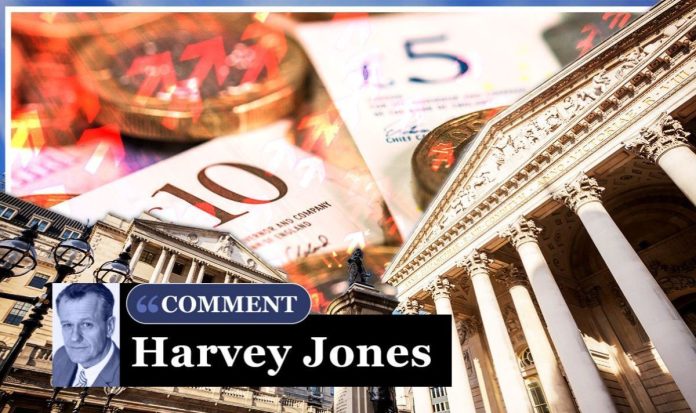Personally, I felt the BoE’s monetary policy committee (MPC) should have put the brakes on monetary tightening two or three meetings ago, but better late than never. Today’s decision is a lifesaver for hard-pressed homeowners and may accelerate the recent trend which has seen mortgage rates fall.
It’s a huge boost for the UK economy generally, as it signals that the rate hikes are over. It’s about time, with the UK economy shrinking by 0.5 percent in July.
The decision to hold interest rates at 5.25 percent, rather than hiking them for the 15th time in a row to 5.5 percent, was a close call. Before yesterday’s surprise drop in inflation for August, markets were expecting another hike.
Even then, the MPC only voted by wafer thin 5-4 majority to hold rates where they were, with four members pressing for yet another hike.
We cannot rule out an increase at the next meeting on November 2, but I’m hoping by then it will become clear that inflation is on the run and rates can be held again.
Despite repeatedly calling for the MPC to hold fire, I’m under no illusion that inflation is down and out.
I simply believed the BoE should take a breather to gauge whether repeatedly hammering borrowers was finally paying off.
Monetary policy changes such as higher interest rates typically work with a lag of around 18 months, as the BoE well knows.
So hiking and hiking again made no sense. It risked plunging the UK into an unnecessary recession.
The cost-of-living crisis has caused enough misery without the BOE making it worse by acting too hawkish, too late.
Not everybody will be celebrating, of course. Savers have getting a much-improved return on their cash deposits.
Many are elderly people living on fixed-incomes who do not want to take a risk with their money but want some kind of return.
Savers may decide that now is the perfect time to lock into a long-term fixed rate savings bond, and I wouldn’t blame them if they did.
Today’s best buy five-year fixed rate savings bond from Shawbrook Bank pays 5.83 percent a year. That’s still above August’s 6.7 percent inflation figure, but the gap will soon narrow.
If consumer price growth slides to five percent by the end of the year, as the BoE predicts and Rishi Sunak hopes, 5.83 percent could soon be an inflation-busting return.
And it’s likely to remain inflation-busting all the way through to 2028.
As I wrote on Sunday, today could also be the perfect time to purchase an annuity, to lock into today’s higher interest rates for life.
As ever, there are no guarantees. Some reckon rates could still climb higher.
Today’s rate freeze looks bad for the pound, initially, as it has dipped against both the US dollar and euro.
Yet with the European Central Bank signalling that last week’s hike to four percent was its last, and the US Federal Reserve holding rates at 5.5 percent yesterday, we’re all on the same page.
Central bankers the world over are now calling peak interest rates.
READ MORE: Interest rates LIVE: BoE ends historic streak of hikes to maintain 5.25%
The next big question is when will rates start falling.
Until recently, markets were forecasting the first rate cut in the spring.
Now they think that inflation and interest rates are likely to stay “higher for longer”, and we may not see another cut until the final months of 2024.
The big worry is the oil price, as Saudi Arabia’s production cuts drive the cost of a barrel of Brent crude towards $100.
Inflation would have gone even lower in August without that.
Another issue is that the Biden administration has pumped up the US economy with $1trillion (£800bilion) to support clean energy. This is fuelling a boom at the same time as the Fed is trying to stop one by hiking rates.
I still think there’s a chance rates could fall in the spring, but who knows? Predicting inflation and interest rate movements with any accuracy is a mug’s game, as the BoE has regularly demonstrated.
At least it made the right decision today. The law of averages suggests it had to happen at some point.
Source: Expressnews.co.uk

